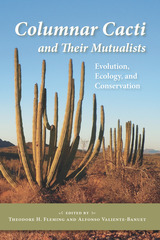Spatial Theories for the Americas
University of Pittsburgh Press, 2024
Cloth: 978-0-8229-4833-9 | eISBN: 978-0-8229-9156-4
See other books on: Americas | Lara, Fernando Luiz
See other titles from University of Pittsburgh Press
Cloth: 978-0-8229-4833-9 | eISBN: 978-0-8229-9156-4
ABOUT THIS BOOK | AUTHOR BIOGRAPHY
ABOUT THIS BOOK
To study the built environment of the Americas is to wrestle with an inherent contradiction. While the disciplines of architecture, urban design, landscape, and planning share the fundamental belief that space and place matter, the overwhelming majority of canonical knowledge and the vernacular used to describe these disciplines comes from another, very different, continent. With this book, Fernando Luiz Lara discusses several theories of space—drawing on cartography, geography, anthropology, and mostly architecture—and proposes counterweights to five centuries of Eurocentrism. The first part of Spatial Theories for the Americas offers a critique of Eurocentrism in the discipline of architecture, problematizing its theoretical foundation in relation to the inseparability of modernization and colonization. The second part makes explicit the insufficiencies of a hegemonic Western tradition at the core of spatial theories by discussing a long list of authors who have thought about the Americas. To overcome centuries of Eurocentrism, Lara concludes, will require a tremendous effort, but, nonetheless, we have the responsibility of looking at the built environment of the Americas through our own lenses. Spatial Theories for the Americas proposes a fundamental step in that direction.
See other books on: Americas | Lara, Fernando Luiz
See other titles from University of Pittsburgh Press












